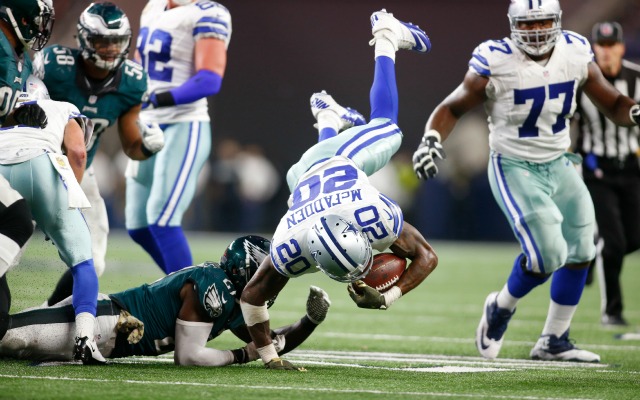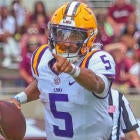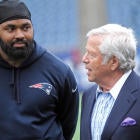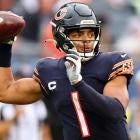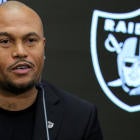The NFL's concussion protocol allows spotters to stop a game and pull a potentially-concussed player off the field. Trainers on the sideline are supposed to be on the lookout for concussed players. But what happens if no one spots a concussion when it happens? What happens if the concussed player decides to hide the injury?
That's exactly what happened on Sunday. Eagles defensive back Malcolm Jenkins confessed on Thursday, saying he suffered a concussion during the second quarter of the Eagles' win over the Cowboys, but played through the brain injury. In fact, Jenkins was on the field for every single defensive down.
"I was in a fog," Jenkins said, via ESPN. "It was like being a rookie. The game was moving really fast. As the game went on, I felt better. I knew something wasn't right."
After the game, Jenkins finally told the medical staff and his coaches.
"I just kind of kept it to myself, which I really shouldn't have done," Jenkins said. "The medical staff and the coaching staff were kind of upset with me afterward. As players, we've all been made aware of the effects of concussions. It's definitely something I'll handle differently.
"I think they all trust my own judgment. Nobody really knew anything or asked me anything. I was still able to digest the plan. We were still making adjustments and I was still making calls."
Jenkins said he suffered the concussion in the second quarter when he tackled Cowboys running back Darren McFadden. After going back and looking at the film, I found one instance in the second quarter when Jenkins tackled McFadden.
This appears to be the hit that concussed Jenkins.

After, Jenkins got on his feet pretty quickly, so it's understandable that the trainers and spotters missed it. In this case, Jenkins needed to report the concussion himself. If he felt foggy, as he said he did, he should've pulled himself from the game.
Really, this case demonstrates one of the NFL's problems with concussions. The NFL can increase the number of spotters watching the game, they can give spotters the power to stop a game, trainers can be watching too -- but if no one sees it, it's ultimately left in the hands of the players.
This should -- needs -- to be a huge concern for the league.
"We confirmed with the team medical staff that no one [coaches, players or medical staff] knew anything about it and did not detect any symptoms," an NFL spokesman said in a statement, per ESPN. "We also confirmed that the ATC spotter [independent certified athletic trainer] upstairs did not see anything to prompt a call down to the medical staff.
"Players are constantly reminded that they share in the responsibility of managing this injury and must report any symptoms they have of a concussion. It is common for symptoms to occur on a delayed basis."
According to Jenkins, this is his first concussion. He entered the concussion protocol earlier in the week and was cleared to practice on Thursday, which means he'll be able to play for the Eagles on Sunday.
